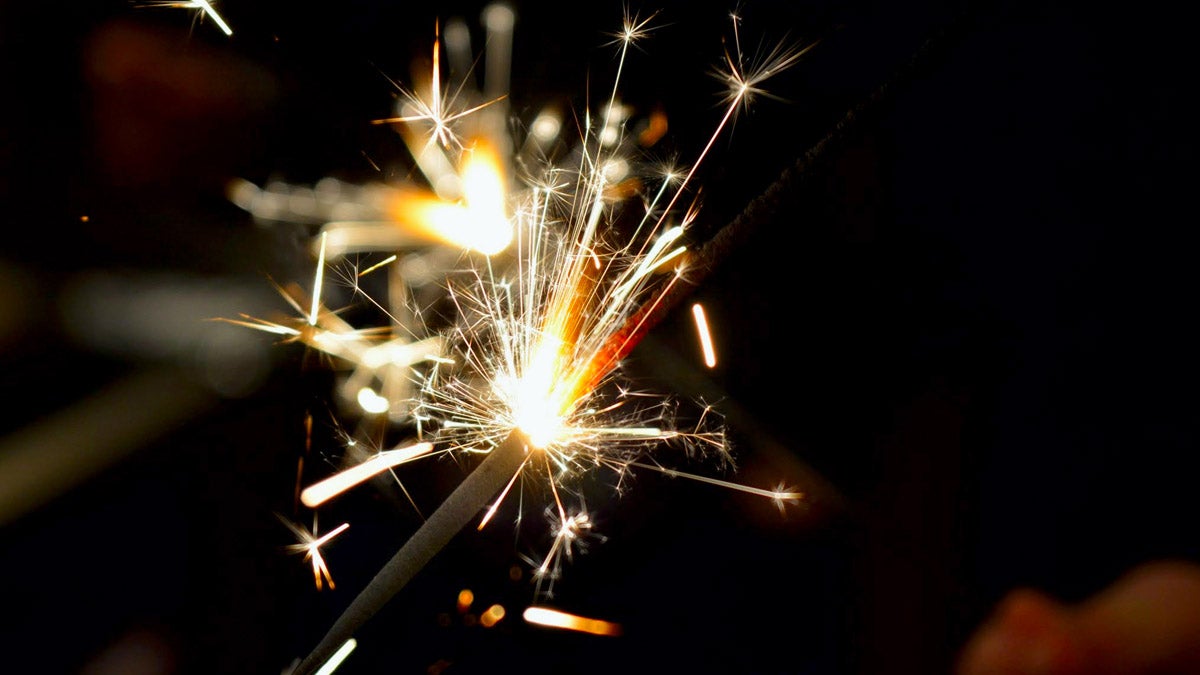Fireworks are (mostly) legal now in the tri-state area. Here’s what you need to know.
Over the last year, Pennsylvania, New Jersey, and Delaware have all relaxed their consumer fireworks laws.

(Bigstock)
If you’ve noticed an increase in temporary fireworks stands near the Jersey Shore or spotted dramatic displays in local supermarkets and billboards advertising sales along the highway, it’s not just because we’re a week away from the Fourth of July. Over the last year, Pennsylvania, New Jersey, and Delaware have all relaxed their consumer fireworks laws.
So what’s sparked this leniency?
Julie Heckman, executive director of the American Pyrotechnics Association, said more and more states have been lifting restrictions on consumer fireworks since 2011.
“Part of it is tax revenue,” she said. “That was the primary driving force because lawmakers were tired of seeing their residents cross state lines.”
Heckman said consumer fireworks revenue in 2010 was $636 million nationally. In 2017, it reached $885 million. She expects for this July 4 season that revenue will surpass $900 million.
So what’s legal in your state?
Pennsylvania
Pennsylvania’s consumer fireworks laws are the most relaxed of all three states.
Last October, lawmakers passed new rules giving state residents more choices in the fireworks they can buy. Under the old and more confusing law, state residents were only allowed to buy ground-based or handheld fireworks like sparklers, while out-of-state residents who showed I.D. could buy a full line of more elaborate products, so long as they shot them off outside the Keystone State.
Now, under the Fireworks Act of 2017, Pennsylvanians 18 and older can also buy any consumer fireworks on the shelves — so long as they comply with federal regulations. That includes Roman candles, bottle rockets, firecrackers and multi-shot repeaters. Certain aerial display fireworks can only be operated by licensed professionals, while others, like M-80s, M-100s, cherry bombs, and quarter-and-a-half sticks are still illegal at the federal level.
But here’s the kicker: Those who buy fireworks might experience some sticker shock. All fireworks are subject to a 12-percent tax. The money goes to addressing state budget gaps, as well as a fund for first-responders.
Some business owners like Joe VanOudenhove, who owns Sky King Fireworks in Morrisville, Pa., aren’t happy with the tax.
“We don’t think celebrating the country’s independence should come at a 12 percent tax,” he said.
Anthony Lobianco, who runs Intergalactic Fireworks in Langhorne, Pa., said he’s watched customers put some fireworks back on shelves after seeing the price after tax.
Prices vary depending on the line of products you purchase and their quality. But some 500-gram cakes will run you more than $100 after the tax. And some of the best mortar kits could cost as much as $225 after tax. The good news: Plenty of fireworks stores are offering some stellar deals, including buy one get one free bargains.
Delaware
In the First State, which has some of the strictest laws on the books, fireworks are only sort of legal — and only on the biggest fireworks days of the year: the Fourth of July and New Years Eve.
In May, Delaware lawmakers passed a bill allowing the use of ground-based fireworks and handheld sparklers on those two holidays. Stores can sell them for up to 30 days before July 4 and Dec. 31.
Some other non-aerial novelty fireworks are also allowed, while firecrackers, bottle rockets, and Roman candles are all no-gos.
You may not see many pop-up shops or stands due to the law’s time limits, but you might be able to buy them at your nearby grocery store.
New Jersey
You may remember traveling to Pennsylvania to buy your (illicit) Independence Day goods. But not anymore.
Last summer, New Jersey legalized the purchase and use of some fireworks — specifically, handheld and ground-based sparklers and novelty items like “snakes,” snappers, and party poppers — for those 16 and older. So as in Delaware, Roman candles, bottle and sky rockets, are off limits.
Heckman said for any tri-state area resident, it’s crucial to also be well-versed in your local municipality’s firework laws and noise ordinances. Some townships may have stricter enforcement than others.
Happy Fourth!
WHYY is your source for fact-based, in-depth journalism and information. As a nonprofit organization, we rely on financial support from readers like you. Please give today.





